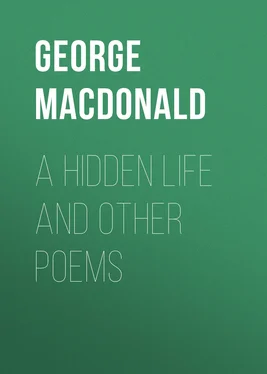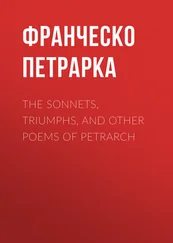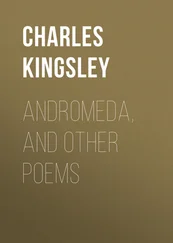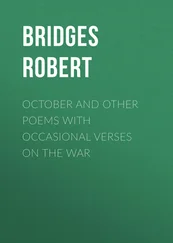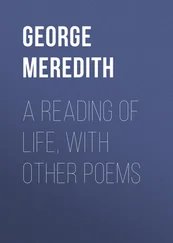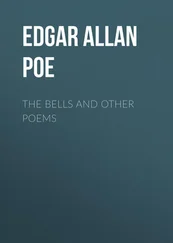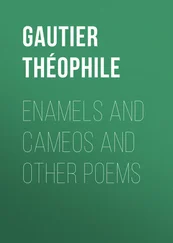George MacDonald - A Hidden Life and Other Poems
Здесь есть возможность читать онлайн «George MacDonald - A Hidden Life and Other Poems» — ознакомительный отрывок электронной книги совершенно бесплатно, а после прочтения отрывка купить полную версию. В некоторых случаях можно слушать аудио, скачать через торрент в формате fb2 и присутствует краткое содержание. Жанр: foreign_prose, literature_19, foreign_antique, на английском языке. Описание произведения, (предисловие) а так же отзывы посетителей доступны на портале библиотеки ЛибКат.
- Название:A Hidden Life and Other Poems
- Автор:
- Жанр:
- Год:неизвестен
- ISBN:нет данных
- Рейтинг книги:4 / 5. Голосов: 1
-
Избранное:Добавить в избранное
- Отзывы:
-
Ваша оценка:
- 80
- 1
- 2
- 3
- 4
- 5
A Hidden Life and Other Poems: краткое содержание, описание и аннотация
Предлагаем к чтению аннотацию, описание, краткое содержание или предисловие (зависит от того, что написал сам автор книги «A Hidden Life and Other Poems»). Если вы не нашли необходимую информацию о книге — напишите в комментариях, мы постараемся отыскать её.
A Hidden Life and Other Poems — читать онлайн ознакомительный отрывок
Ниже представлен текст книги, разбитый по страницам. Система сохранения места последней прочитанной страницы, позволяет с удобством читать онлайн бесплатно книгу «A Hidden Life and Other Poems», без необходимости каждый раз заново искать на чём Вы остановились. Поставьте закладку, и сможете в любой момент перейти на страницу, на которой закончили чтение.
Интервал:
Закладка:
Not much of her I tell. Her changeful life
Where part the waters on the mountain ridge,
Flowed down the other side apart from his.
Her tale hath wiled deep sighs on summer eves,
Where in the ancient mysteries of woods
Walketh a man who worships womanhood.
Soon was she orphaned of such parent-haunts;
Surrounded with dead glitter, not the shine
Of leaves in wind and sunlight; while the youth
Breathed on, as if a constant breaking dawn
Sent forth the new-born wind upon his brow;
And knew the morning light was climbing up
The further hill-side—morning light, which most,
They say, reveals the inner hues of earth.
Now she was such as God had made her, ere
The world had tried to spoil her; tried, I say,
And half-succeeded, failing utterly.
Fair was she, frank, and innocent as a child
That stares you in the eyes; fearless of ill,
Because she knew it not; and brave withal,
Because she drank the draught that maketh strong,
The charmed country air. Her father's house—
A Scottish laird was he, of ancient name—
Stood only two miles off amid the hills;
But though she often passed alone as now,
The youth had never seen her face before,
And might not twice. Yet was not once enough?
It left him not. She, as the harvest moon
That goeth on her way, and knoweth not
The fields of grain whose ripening ears she fills
With wealth of life and human joyfulness,
Went on, and knew not of the influence
She left behind; yea, never thought of him;
Save at those times when, all at once, old scenes
Return uncalled, with wonder that they come,
Amidst far other thoughts and other cares;
Sinking again into their ancient graves,
Till some far-whispered necromantic spell
Loose them once more to wander for a space.
Again I say, no fond romance of love,
No argument of possibilities,
If he were some one, and she claimed his aid,
Turned his clear brain into a nest of dreams.
As soon he had sat down and twisted cords
To snare, and carry home for daylight use,
Some woman-angel, wandering half-seen
On moonlight wings, o'er withered autumn fields.
But when he rose next morn, and went abroad,
(The exultation of his new-found rank
Already settling into dignity,)
He found the earth was beautiful. The sky,
Which shone with expectation of the sun,
Somehow, he knew not how, was like her face.
He grieved almost to plough the daisies down;
Something they shared in common with that smile
Wherewith she crowned his manhood; and they fell
Bent in the furrow, sometimes, with their heads
Just out imploringly. A hedgehog ran
With tangled mesh of bristling spikes, and face
Helplessly innocent, across the field:
He let it run, and blessed it as it ran.
At noon returning, something drew his feet
Into the barn. Entering, he gazed and stood.
Through the rent roof alighting, one sunbeam,
Blazing upon the straw one golden spot,
Dulled all the yellow heap, and sank far down,
Like flame inverted, through the loose-piled mound,
Crossing the splendour with the shadow-straws,
In lines innumerable. 'Twas so bright,
The eye was cheated with a spectral smoke
That rose as from a fire. He never knew,
Before, how beautiful the sunlight was;
Though he had seen it in the grassy fields,
And on the river, and the ripening corn,
A thousand times. He threw him on the heap,
And gazing down into the glory-gulf,
Dreamed as a boy half-sleeping by the fire;
And dreaming rose, and got his horses out.
God, and not woman, is the heart of all.
But she, as priestess of the visible earth,
Holding the key, herself most beautiful,
Had come to him, and flung the portals wide.
He entered in: each beauty was a glass
That gleamed the woman back upon his view.
Already in these hours his growing soul
Put forth the white tip of a floral bud,
Ere long to be a crown-like, shadowy flower.
For, by his songs, and joy in ancient tales,
He showed the seed lay hidden in his heart,
A safe sure treasure, hidden even from him,
And notwithstanding mellowing all his spring;
Until, like sunshine with its genial power,
Came the fair maiden's face: the seed awoke.
I need not follow him through many days;
Nor tell the joys that rose around his path,
Ministering pleasure for his labour's meed;
Nor how each morning was a boon to him;
Nor how the wind, with nature's kisses fraught,
Flowed inward to his soul; nor how the flowers
Asserted each an individual life,
A separate being, for and in his thought;
Nor how the stormy days that intervened
Called forth his strength, and songs that quelled their force;
Nor how in winter-time, when thick the snow
Armed the sad fields from gnawing of the frost,
And the low sun but skirted his far realms,
And sank in early night, he took his place
Beside the fire; and by the feeble lamp
Head book on book; and lived in other lives,
And other needs, and other climes than his;
And added other beings thus to his.
But I must tell that love of knowledge grew
Within him to a passion and a power;
Till, through the night (all dark, except the moon
Shone frosty o'er the lea, or the white snow
Gave back all motes of light that else had sunk
Into the thirsty earth) he bent his way
Over the moors to where the little town
Lay gathered in the hollow. There the man
Who taught the children all the shortened day,
Taught other scholars in the long fore-night;
And youths who in the shop, or in the barn,
Or at the loom, had done their needful work,
Came to his schoolroom in the murky night,
And found the fire aglow, the candles lit,
And the good master waiting for his men.
Here mathematics wiled him to their heights;
And strange consent of lines to form and law
Made Euclid like a great romance of truth.
The master saw with wonder how the youth
All eagerly devoured the offered food,
And straightway longed to lead him; with that hope
Of sympathy which urges him that knows
To multiply great knowledge by its gift;
That so two souls ere long may see one truth,
And, turning, see each others' faces shine.
So he proposed the classics; and the youth
Caught at the offer; and for many a night,
When others lay and lost themselves in sleep,
He groped his way with lexicon and rule,
Through ancient deeds embalmed in Latin old,
Or poet-woods alive with gracious forms;
Wherein his knowledge of the English tongue
(Through reading many books) much aided him—
For the soul's language is the same in all.
At length his progress, through the master's word,
Proud of his pupil, reached the father's ears.
Great joy arose within him, and he vowed,
If caring, sparing would accomplish it,
He should to college, and should have his fill
Of that same learning.
So to school he went,
Instead of to the plough; and ere a year,
He wore the scarlet gown with the close sleeves.
Awkward at first, but with a dignity
That soon found fit embodiment in speech
And gesture and address, he made his way,
Not seeking it, to the respect of youths,
In whom respect is of the rarer gifts.
Likewise by the consent of accidents,
More than his worth, society, so called,
In that great northern city, to its rooms
Invited him. He entered. Dazzled first,
Not only by the brilliance of the show,
In lights and mirrors, gems, and crowded eyes;
But by the surface lights of many minds
Cut like rose-diamonds into many planes,
Which, catching up the wandering rays of fact,
Reflected, coloured, tossed them here and there,
In varied brilliance, as if quite new-born
From out the centre, not from off the face—
Dazzled at first, I say, he soon began
To see how little thought could sparkle well,
And turn him, even in the midst of talk,
Back to the silence of his homely toils.
Around him still and ever hung an air
Born of the fields, and plough, and cart, and scythe;
A kind of clumsy grace, in which gay girls
Saw but the clumsiness; while those with light,
Instead of glitter, in their quiet eyes,
Saw the grace too; yea, sometimes, when he talked,
Saw the grace only; and began at last,
As he sought none, to seek him in the crowd
(After a maiden fashion), that they might
Hear him dress thoughts, not pay poor compliments.
Yet seldom thus was he seduced from toil;
Or if one eve his windows showed no light,
The next, they faintly gleamed in candle-shine,
Till far into the morning. And he won
Honours among the first, each session's close.
Интервал:
Закладка:
Похожие книги на «A Hidden Life and Other Poems»
Представляем Вашему вниманию похожие книги на «A Hidden Life and Other Poems» списком для выбора. Мы отобрали схожую по названию и смыслу литературу в надежде предоставить читателям больше вариантов отыскать новые, интересные, ещё непрочитанные произведения.
Обсуждение, отзывы о книге «A Hidden Life and Other Poems» и просто собственные мнения читателей. Оставьте ваши комментарии, напишите, что Вы думаете о произведении, его смысле или главных героях. Укажите что конкретно понравилось, а что нет, и почему Вы так считаете.
